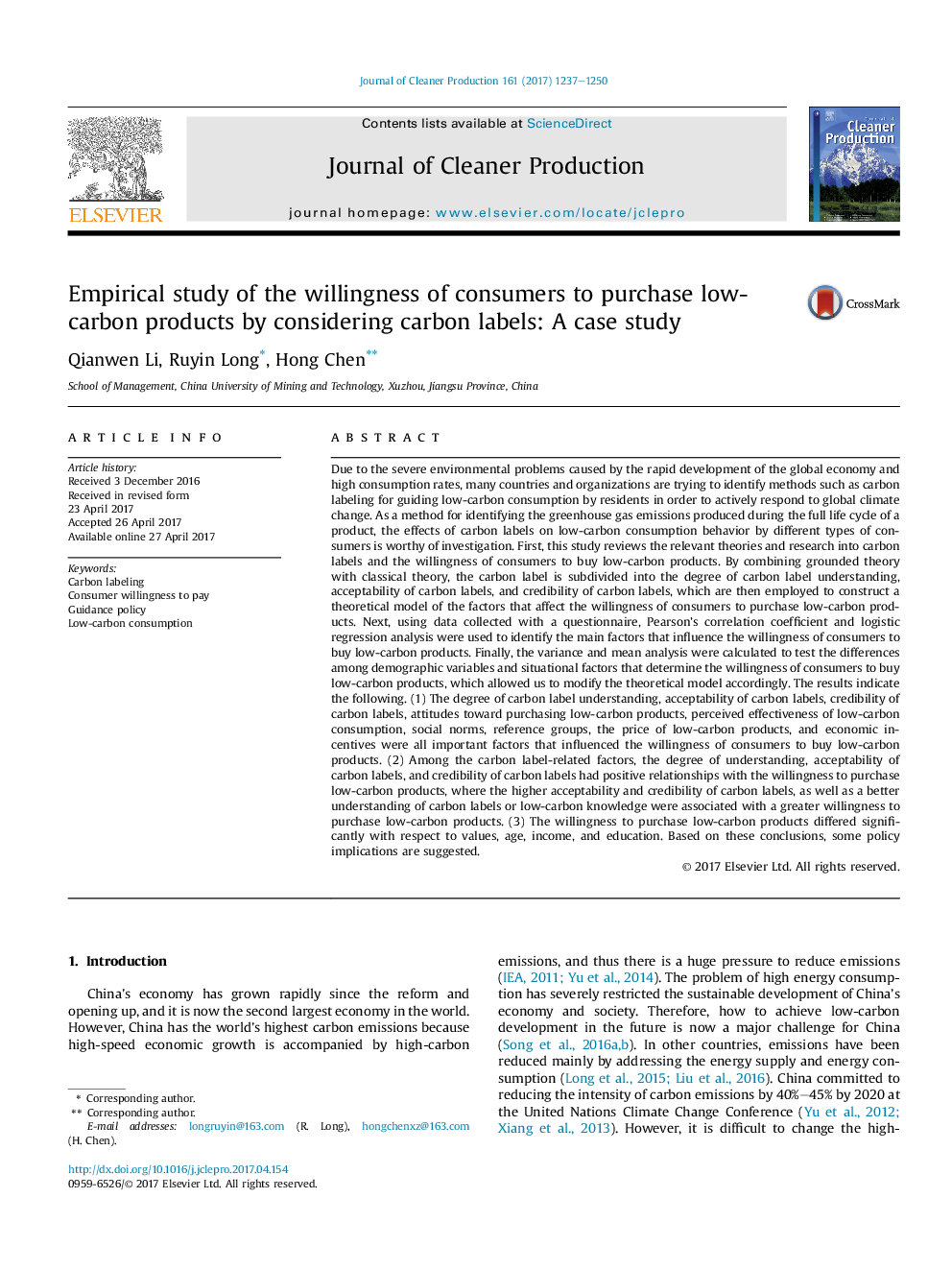Due to the severe environmental problems caused by the rapid development of the global economy and high consumption rates, many countries and organizations are trying to identify methods such as carbon labeling for guiding low-carbon consumption by residents in order to actively respond to global climate change. As a method for identifying the greenhouse gas emissions produced during the full life cycle of a product, the effects of carbon labels on low-carbon consumption behavior by different types of consumers is worthy of investigation. First, this study reviews the relevant theories and research into carbon labels and the willingness of consumers to buy low-carbon products. By combining grounded theory with classical theory, the carbon label is subdivided into the degree of carbon label understanding, acceptability of carbon labels, and credibility of carbon labels, which are then employed to construct a theoretical model of the factors that affect the willingness of consumers to purchase low-carbon products. Next, using data collected with a questionnaire, Pearsonâs correlation coefficient and logistic regression analysis were used to identify the main factors that influence the willingness of consumers to buy low-carbon products. Finally, the variance and mean analysis were calculated to test the differences among demographic variables and situational factors that determine the willingness of consumers to buy low-carbon products, which allowed us to modify the theoretical model accordingly. The results indicate the following. (1) The degree of carbon label understanding, acceptability of carbon labels, credibility of carbon labels, attitudes toward purchasing low-carbon products, perceived effectiveness of low-carbon consumption, social norms, reference groups, the price of low-carbon products, and economic incentives were all important factors that influenced the willingness of consumers to buy low-carbon products. (2) Among the carbon label-related factors, the degree of understanding, acceptability of carbon labels, and credibility of carbon labels had positive relationships with the willingness to purchase low-carbon products, where the higher acceptability and credibility of carbon labels, as well as a better understanding of carbon labels or low-carbon knowledge were associated with a greater willingness to purchase low-carbon products. (3) The willingness to purchase low-carbon products differed significantly with respect to values, age, income, and education. Based on these conclusions, some policy implications are suggested.


